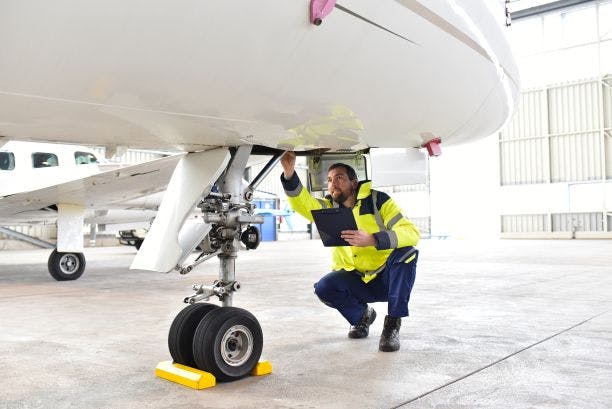Aerospace
France is a major aerospace nation that benefits from a dynamic, structured and innovative industrial sector.


A priority sector for France
The aerospace sector, the largest contributor to the French trade balance, is of strategic importance for our economy. France is the only country, along with the United States, to have a complete aerospace industry, including the design, production and maintenance of civil and military aerospace equipment (planes, helicopters, drones, airships).
The sector in figures
- €70.2 billion in revenues in 2023 (Source: Gifas).
- More than 1,000 businesses.
- 210,000 jobs.
- €23.5 billion: positive contribution to the trade balance in 2022. (Source: National Council for Industry)
France’s ambitions
Maintaining the best global level in terms of competitiveness, flexibility and R&D, with a view to decarbonizing the sector.
France’s strengths
A rich ecosystem
France has an ecosystem that supports the success of aerospace businesses.
Many large groups, such as Airbus, Thales, ATR and Safran, rely on a network of subcontracting firms, mainly SMEs/mid-size companies, whose skills range from the manufacture of tools and simple mechanical and electronic elements to the design, manufacture and assembly of complex elements.
France also has three innovation clusters: Aerospace Valley (Occitanie and Nouvelle Aquitaine regions), ASTech (Paris/Ile de France) and SAFE Cluster (Provence-Alpes-Côte d’Azur).
Strong R&D
Aerospace construction is the second leading manufacturing industry in terms of R&D.
Examples of projects in the pipeline include those by the European manufacturer Airbus, which aims to fly a hydrogen-powered plane by 2035, and Safran, which is developing new hybrid engines. (Source: Mesri, 2018)
Advanced training
The French Aerospace Universities Network is made up of the French School of Civil Aviation and the Institute of Aerospace Engineering (ISAE-SUPAERO), both located in Toulouse, as well as the National Engineering School of Mechanical and Aerospace Engineering (ISAE – ENSMA), in Poitiers.
They chose France
- The American firm Collins Aerospace has invested in Figeac (Occitanie) in a Propeller center of excellence, operational since 2021 and dedicated to the development of propellers for future generations of turboprop engines. This center, for which the total investment amounts to €32 million, with €2 million coming from the Occitanie region, contributes to the development of carbon-free aviation, as well as business influence, both at a national and international level.
- The firm IMET Alloys, whose head office is based in Scotland, United Kingdom, invested €15 million in 2022 in a unique project in Europe for the recycling and recovery of titanium and superalloys for the aerospace industry. On the former Borgwarner site in Corrèze (Nouvelle Aquitaine), which closed in 2020, the business has already established several processing lines and recruited around fifteen people. IMET Alloys aims to create fifty jobs in five years as part of a new phase of development, with the establishment of an R&D center.

